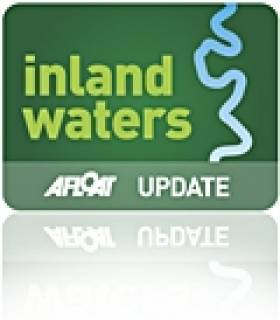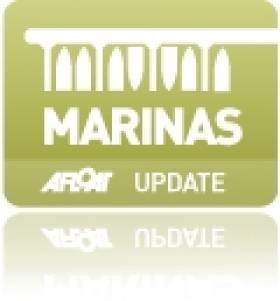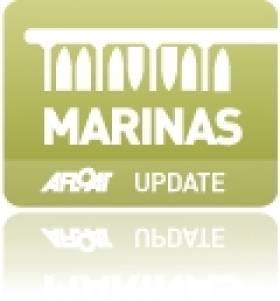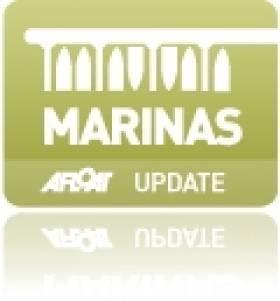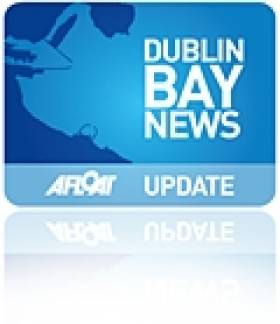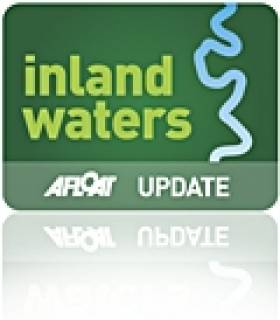Displaying items by tag: Jetty
MARINE NOTICE
No. 76 of 2013
ERNE NAVIGATION
UPPER LOUGH ERNE
TEMPORARY CLOSURE OF PUBLIC JETTY
Derryvore
Trial Bay
Waterways Ireland wishes to advise masters and owners that the mooring jetty at the above location has been temporarily closed to the public to facilitate emergency repair works.
Waterways Ireland apologises for any inconvenience caused during these works.
Charles Lawn
Inspector of Navigation
25 Jun 2013
Tel: 00 353 (0)90 6494232
Fax : 00 353 (0) 6494147
Five miles beyond Foynes Island on the Shannon Estuary in County Limerick is Deel Boat Club that provides a club pontoon and moorings.
Three Sisters Marina at New Ross in County Wexford is on the River Barrow and it is New Ross Town Council facility. It is nine miles up river from the confluence of the Suir and Barrow and it is 18 nautical miles from the sea at Hook Head.
The marina is a modern 66 berth facility. The marina has electrical shore power, mains water toilets and shower facilities. Alongside the marina is a major lift-out facility catering for vessels up to 50 tonnes.
The Marina Manager: John Dimond. The Email: [email protected]
Phone: 086 3889652 or 051 421284
Sligo Harbour Pontoon. Berthing for Yachts & Boats in Sligo
The pontoon jetty at Ballast Quay in Sligo is designed to be used primarily for day trips or shortterm stays in the City. The facility is made available for use by owners and authorised crew of leisure craft owned, managed and operated by Sligo County Council (SCC).
The pontoon is available to all local and visiting leisure craft and also available for long-term berthing either with or without crew.
The pontoon will also be available on a limited basis to sailing clubs wishing to host events during the sailing season.
Access to the Jetty area and to the pontoon is controlled by security coded locks, which (in the interests of security) are changed on a regular basis.
A pdf download of the Sligo County Council rules for the jetty is downloadable as a pdf document below
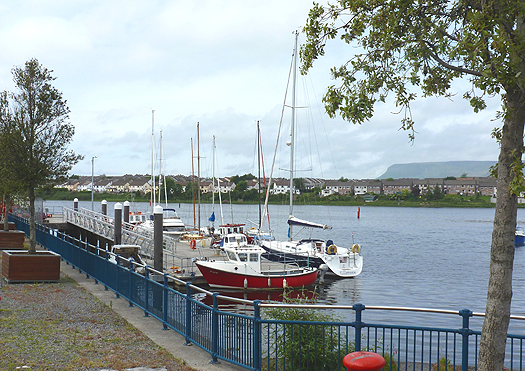
The boating pontoon at Ballast Quay in Sligo. Photo: WM Nixon
Dun Laoghaire Yacht Clubs Voice Concern Over Plan
Dun Laoghaire Yacht Clubs are voicing concerns about the impact on sailing if a 'cruise ship jetty' is constructed as part of the recently published harbour masterplan.
Dublin Bay Sailing Club, Dun Laoghaire Motor Yacht Club, National Yacht Club, Royal Alfred Yacht Club
Royal Irish Yacht Club and Royal St George Yacht Club. are also concerned about access to the water if a proposed 'pedestrian walkway' in front of the waterfront clubs was completed.
The clubs have engaged 'professional help' to prepare a submission to outine the concerns.
Also seen as a problem is the 'lack of sufficient facilities in the masterplan for hosting significant international sailing events'.
A survey in 2009 by the Irish Marine Federation (IMF) calculated a €3million spend by participants connected with the 500-boat Volvo Dun Laoghaire regatta. The clubs have previously stated they see the harbour's future as a leisure facility.
A masterplan model was on display by the Harbour Company in the month of August.
Writing to members in the current edition of the National Yacht Club's newsletter commodore Paul Barrington says the clubs 'hope to further engage with the harbour [company] to find a mutually acceptable way forward'.
Water Rat: Harbour Plan is a Curate's Egg
Anglers, Developer Row Over Liffey Jetty
A private inland waterways jetty on the Liffey has caused unrest among local anglers, the Circuit Civil Court heard on Thursday.
According to The Irish Times, the Dublin and District Salmon Anglers' Association is seeking a court order against entrepreneur David Wright - of the noted Howth family of fish suppliers - who they claim is 'disturbing the calm of the river'.
The group also accused him of trespassing on a stretch of river leased to them by Dublin City Council for exclusive fishing rights, and were obliged by their lease to protect the fishery.
It is alleged that Wright built a double jetty with retractable pontoons at the rear of two houses he owns on the riverbank in Chapelizod.
His barrister Edward Farrelly told the court he would challenge Dublin City Council's right to lease the river.



























